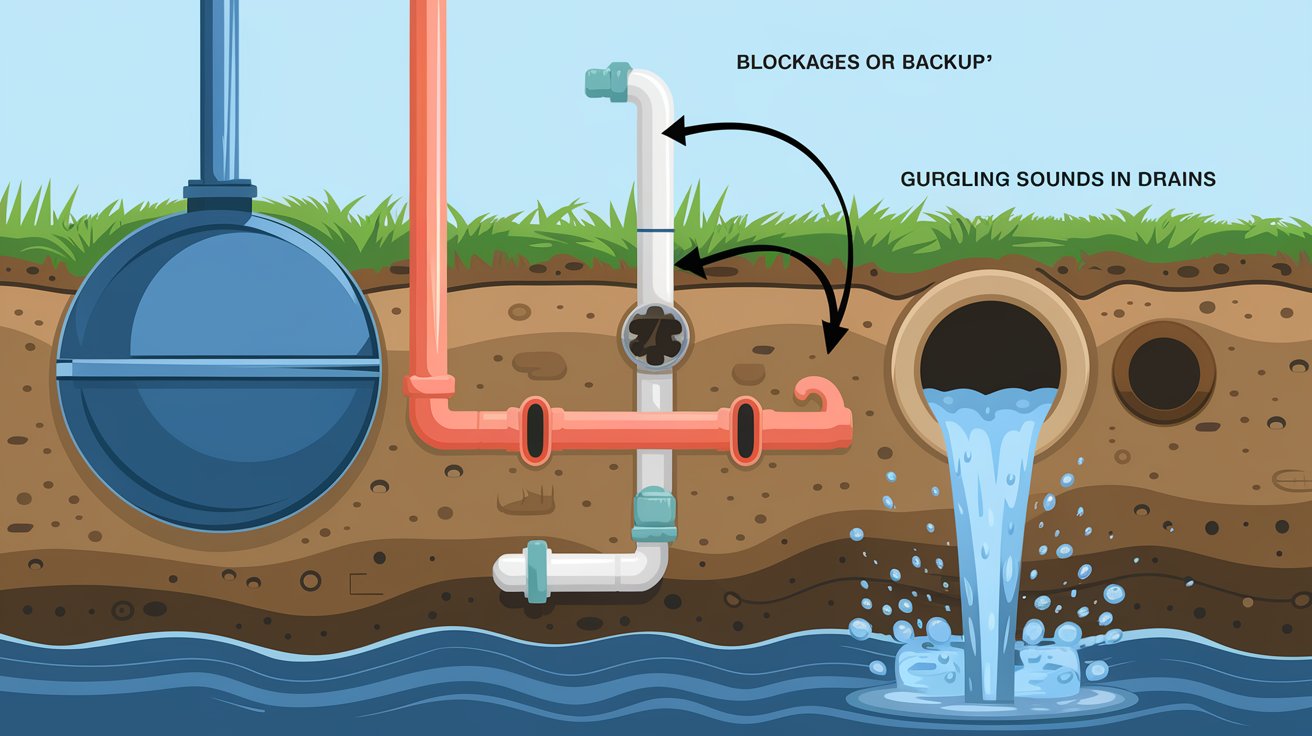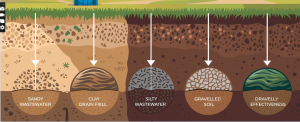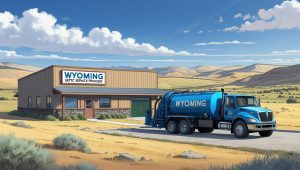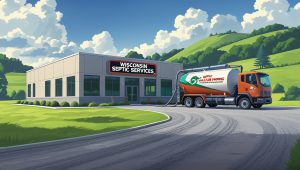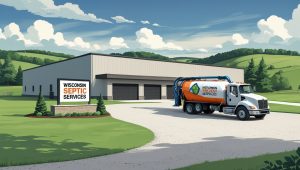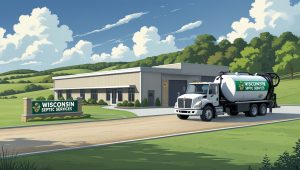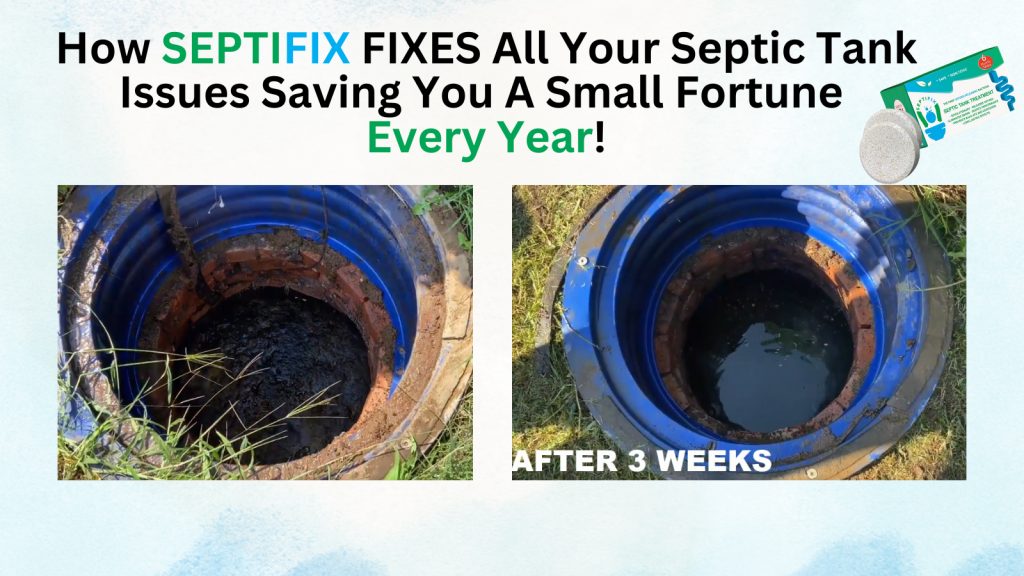If you’re hearing gurgling sounds in drains, it might seem like a minor annoyance—but it can be a sign of a deeper issue in your septic system or household plumbing. Whether it’s a bubbling bathroom sink, a noisy kitchen drain, or your toilet making odd noises, gurgling often means air is trapped somewhere it shouldn’t be. Left untreated, these noises can signal clogged vents, blocked sewer lines, or even failing septic tanks. Catching the issue early can save you from expensive repairs and health risks.
Table of Contents
- What Causes Gurgling Drains?
- How to Diagnose the Problem
- Fixing Gurgling Drain Issues
- When to Call a Professional
- Preventing Future Gurgling Noises
- Contact Info and Resources
- Conclusion: Stay Ahead of the Gurgle
- Septifix Boosts Septic Performance
- Septic Permit Links by State
What Causes Gurgling Drains?
Air Displacement from a Clog
One of the most common reasons for gurgling is a partial blockage in the drain line. When water flows past the clog, it pushes air ahead of it. That trapped air escapes back through your fixtures, causing the gurgling noise.
Blocked or Improperly Vented Drainage System
Your home’s plumbing relies on vent pipes to equalize air pressure. If the vent is clogged—often by debris, bird nests, or even snow—you might notice bubbling sounds as air gets pulled through the water trap instead.
Pro Tip: Vents are typically located on the roof. If you’re comfortable and it’s safe, you can inspect them for blockages or call a licensed plumber for help.
Full or Failing Septic System
If your home uses a septic tank (also called a drainfield, onsite wastewater system, or private sewage system), gurgling could mean the tank is full or not processing wastewater correctly. In this case, water can’t drain freely, and the resulting air pressure creates noisy backups.
Sewer Line Trouble
Tree roots, collapsed lines, or heavy blockages in the main sewer line can also force air to bubble back into your fixtures. This usually affects multiple drains at once and may be accompanied by slow draining or foul smells.
How to Diagnose the Problem
Listen to Where the Sound Is Coming From
- Single drain gurgling? The issue is likely local—like a clog in that drain or its nearby vent.
- Multiple drains affected? This often signals a larger problem in your main sewer line or septic system.
Check for Slow Draining
Slow sinks, tubs, or showers are a common red flag. If water drains slowly and makes noise, it’s time to investigate further.
Perform a Visual Roof Vent Check
Look for leaves, nests, or visible debris in roof vents. If blocked, these can easily disrupt air balance in your plumbing.
Fixing Gurgling Drain Issues
1. Use a Drain Snake or Plunger
For basic clogs, a plumber’s snake or plunger can often solve the issue. Be sure to work the tool gently to avoid damaging pipes.
2. Flush the Vent Stack
If you’re comfortable on the roof, you can try flushing the vent pipe with a garden hose. If water backs up, the vent is blocked and may require professional cleaning.
3. Pump the Septic Tank
If your onsite wastewater treatment system hasn’t been pumped in 3–5 years, a full tank could be the culprit. Call a licensed septic professional to inspect and pump the tank.
4. Schedule a Sewer Camera Inspection
For recurring or hard-to-pinpoint issues, a video inspection of the sewer line can reveal deep clogs or breaks without digging up your yard.
When to Call a Professional
Some problems require expert help. You should contact a licensed plumber or septic service provider if:
- You hear gurgling in more than one drain
- Drains are backing up or releasing foul odors
- You’ve already tried clearing the lines with no improvement
- You suspect a septic tank issue but aren’t sure
Ignoring these signs can lead to system failure, property damage, and potential health hazards.
Preventing Future Gurgling Noises
Practice Routine Maintenance
- Avoid flushing non-biodegradable items like wipes or sanitary products
- Use enzyme-based drain treatments to maintain flow
- Pump your septic system regularly (every 3–5 years)
Protect Your Drainfield
Avoid parking or planting trees near your leach field, as compacted soil and roots can cause backflow and pressure changes that lead to gurgling.
Install Drain Traps Correctly
Properly installed P-traps prevent air from being sucked into the pipes, keeping your system quiet and efficient.
Contact Info and Resources
If you’re dealing with gurgling sounds in your drains and suspect it’s related to a septic tank or plumbing vent issue, consider reaching out to a trusted local provider.
Helpful Links:
- EPA SepticSmart Program – Maintenance tips and resources
- National Association of Wastewater Technicians (NAWT) – Find certified septic professionals
- HomeAdvisor Septic Service Listings – Compare local providers
- How to Clean a Roof Vent Pipe (YouTube Guide)
Conclusion: Stay Ahead of the Gurgle
Gurgling sounds in your drains aren’t just odd—they’re a warning. From clogged plumbing vents to full septic tanks, ignoring the problem can cost you. With some DIY troubleshooting and timely maintenance, you can keep your system flowing smoothly. But when in doubt, call in a pro. Your pipes—and your wallet—will thank you.
What Types of Regional Soil Work Best for Septic Systems?
Septic Tanks in Rural Areas: A Practical Guide for Homeowners
Directory | Wyoming Septic Service Providers : Best Professionals
Directory | Wisconsin Septic Service Providers | Part 3
Directory | Wisconsin Septic Service Providers | Part 2
Directory | Wisconsin Septic Service Providers | Part 1
Septifix Boosts Septic Performance

